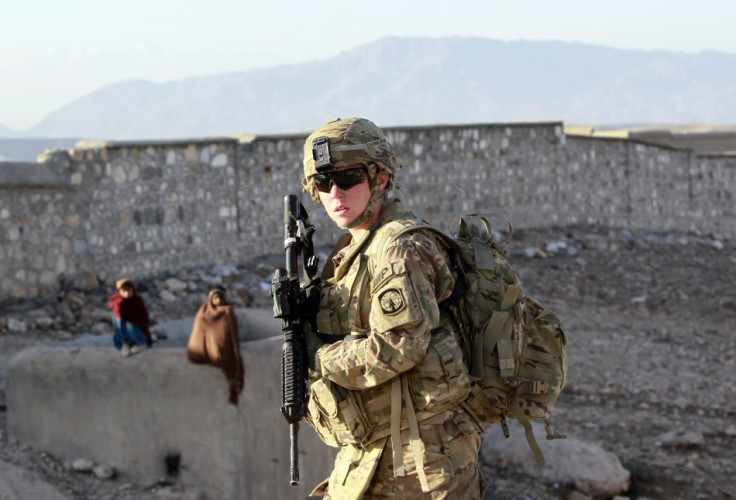Sex on the Frontline: Female Soldiers at Increased Risk from STDs

Women in the military are at a greater risk of contracting sexually transmitted diseases than their civilian peers because they are more likely to engage in high-risk sexual practices.
Research published in the Journal of Women's Health found that female soldiers are consistently less likely to use barrier contraception than women in civilian life, putting them at greater risk of STDs.
The Pentagon recently announced it will end its ban on women serving in combat roles, meaning there will be thousands of frontline positions potentially open to women.
President Barack Obama called the move, which overturns a 1994 ruling, a "historic step". The military has until 2016 to decide which positions, if any, should remain closed to women.
The study, by Vinita Goyal, from the Women & Infants Hospital of Rhode Island, found that the rates of STDs in military women are seven times higher than for civilians.
She said: "Studies indicate a high prevalence of risky sexual behaviours - including inconsistent condom use, multiple sexual partners, and binge drinking - that lead to unintended and unsafe sex.
Stigmatised as promiscuous
"These high-risk sexual practices likely contribute to chlamydia infection rates that are higher than the rates in the general US population. Human papillomavirus (HPV) infection and cervical dysplasia may also be higher among young, active duty servicewomen."
Goyal found that 27 percent of servicewomen had had more than one sexual partner in the last 90 days and of these, just 17 percent said the partner always wore a condom.
An earlier study by Goyal also found that female soldiers are at higher risk of unintended pregnancy than civilians, suggesting military rules regarding sexual activity may prevent women from accessing birth control.
"(Navy) women reported feeling stigmatised as promiscuous if they requested condoms and believed their male counterparts to be exempt from the same criticism," she said.
"They also reported not using condoms because if found, it would be evidence that they were violating the military policy that prohibits sexual activity when deployed."
Goyal said that military healthcare providers must be aware of reproductive health care and STDs among women in the military, as the number of female soldiers increases.
"Understanding and addressing the needs of these women will give health care providers an opportunity to improve reproductive health care and perhaps lower the rates of sexually transmitted infections among servicewomen and female veterans," she said.
© Copyright IBTimes 2025. All rights reserved.























